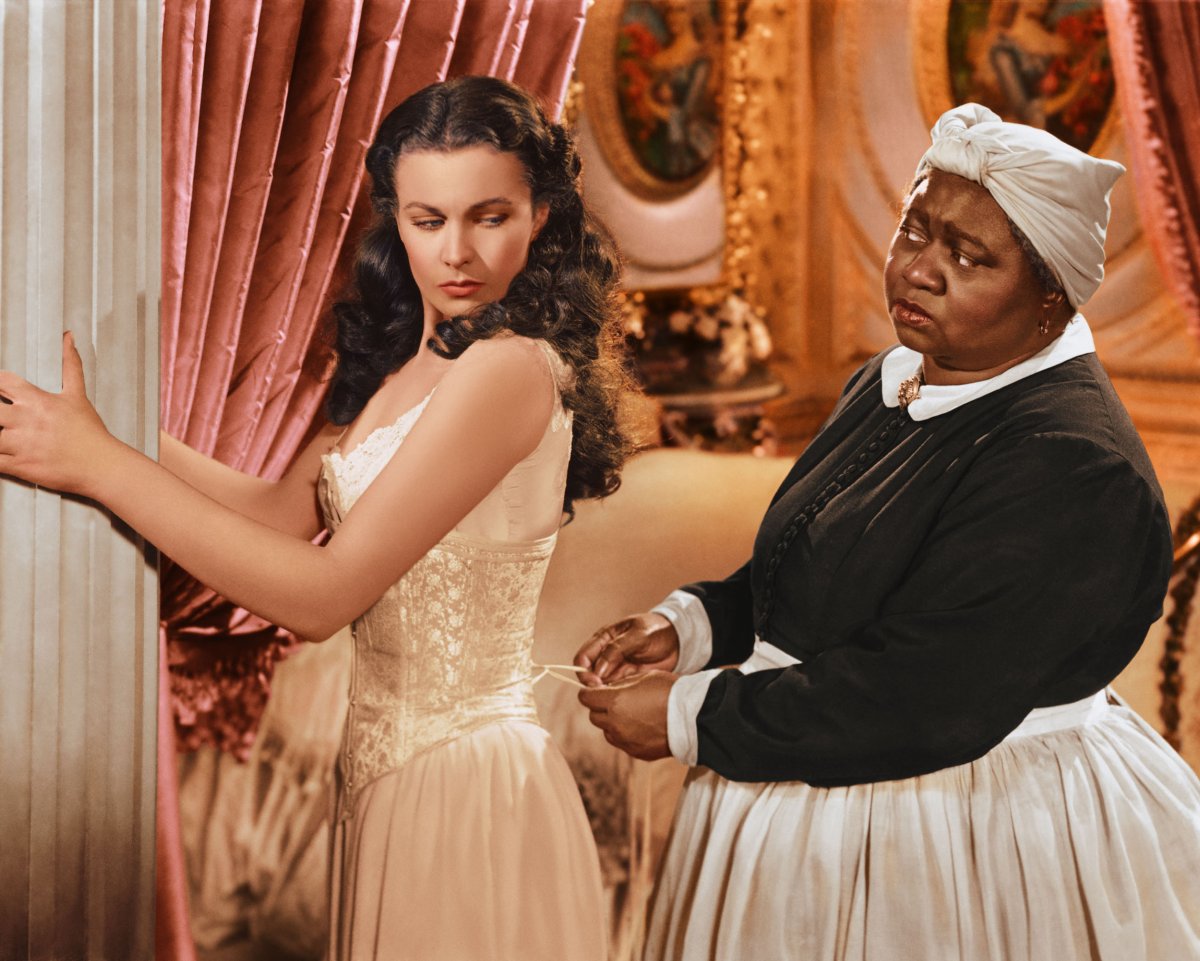Hollywood on Netflix is a revisionist take on the Golden Age of Hollywood, that explore what movie history would be like if society had been more progressive. Among the real figures who feature in the series is Hattie McDaniel (played by Queen Latifah), the woman who made history as the first black person to be nominated for an Oscar.
In 1939, she won Best Supporting Actress for playing Mammy, the maid in Gone With the Wind. In Hollywood, this win is followed with the fictional win of Camille Washington (Laura Harrier), who becomes the first black Best Actress winner.
In the Netflix series, McDaniel tells Washington that she had to stand in the lobby when she won her Oscar as the venue had a strict "no blacks" policy. This is then contrasted with Washington's win, when she demands to be let into the ceremony.

In order to create this contrast, however, Hollywood creator Ryan Murphy had to slightly change the true events of McDaniel's Oscar win. Though the venue did not allow people of color in, heavy lobbying meant that McDaniel was let into the ceremony. However, she was relegated to a small table at the back of the venue, separated from the rest of the cast of Gone With the Wind.
In Hollywood, it is implied that Washington's Oscar win opens up the opportunities for black actors. In reality, however, McDaniel often found herself relegated to playing maids. According to Smithsonian Magazine, the actor played domestic staff at least 74 times across her career, including in the controversial Song of the South, a film regularly denounced for its racism.
This led to her being criticized by numerous advocacy groups, including the NAACP, with "Mammy" becoming a shorthand for stereotypical black maid roles that many actors found was the only work they could get.
However, McDaniel remained unapologetic about her film roles. She is frequently quoted as saying "I'd rather play a maid than be a maid." In 1947, around the time that Hollywood is set, she wrote in an Hollywood Reporter op-ed: "I have never apologized for the roles I play... Several times I have persuaded the directors to omit dialect from modern pictures. They readily agreed to the suggestion. I have been told that I have kept alive the stereotype of the Negro servant in the minds of theatre-goers. I believe my critics think the public more naïve than it actually is."
Aside from her film career, McDaniel was a radio star, and is believed to be the first black woman heard on the radio in the U.S. This means that the actor now has two stars on the Hollywood Walk of Fame: One for her screen work and another for her work on the airwaves. When one of her radio characters moved to TV, she also became on of the first black actors in a sitcom.
Hollywood also reignites a rumor about McDaniel: That she had an affair with the bisexual actor Tallulah Bankhead. This has long been rumored and repeated in numerous accounts of Hollywood, but has never been confirmed, though Bankhead once claimed she had slept with 500 people.
Following McDaniel's death in 1952, she faced racism when the segregated Hollywood Forever cemetery did not allow her body to be buried there. She does, however, have a cenotaph at the burial ground. Post-death, she has also been part of one of Hollywood's big mysteries, as her Oscar has been missing since the 1960s. It has often been alleged that it was disposed of as part of a racist protest, though that has never been confirmed.
Hollywood is streaming now on Netflix.
Uncommon Knowledge
Newsweek is committed to challenging conventional wisdom and finding connections in the search for common ground.
Newsweek is committed to challenging conventional wisdom and finding connections in the search for common ground.
About the writer
To read how Newsweek uses AI as a newsroom tool, Click here.








